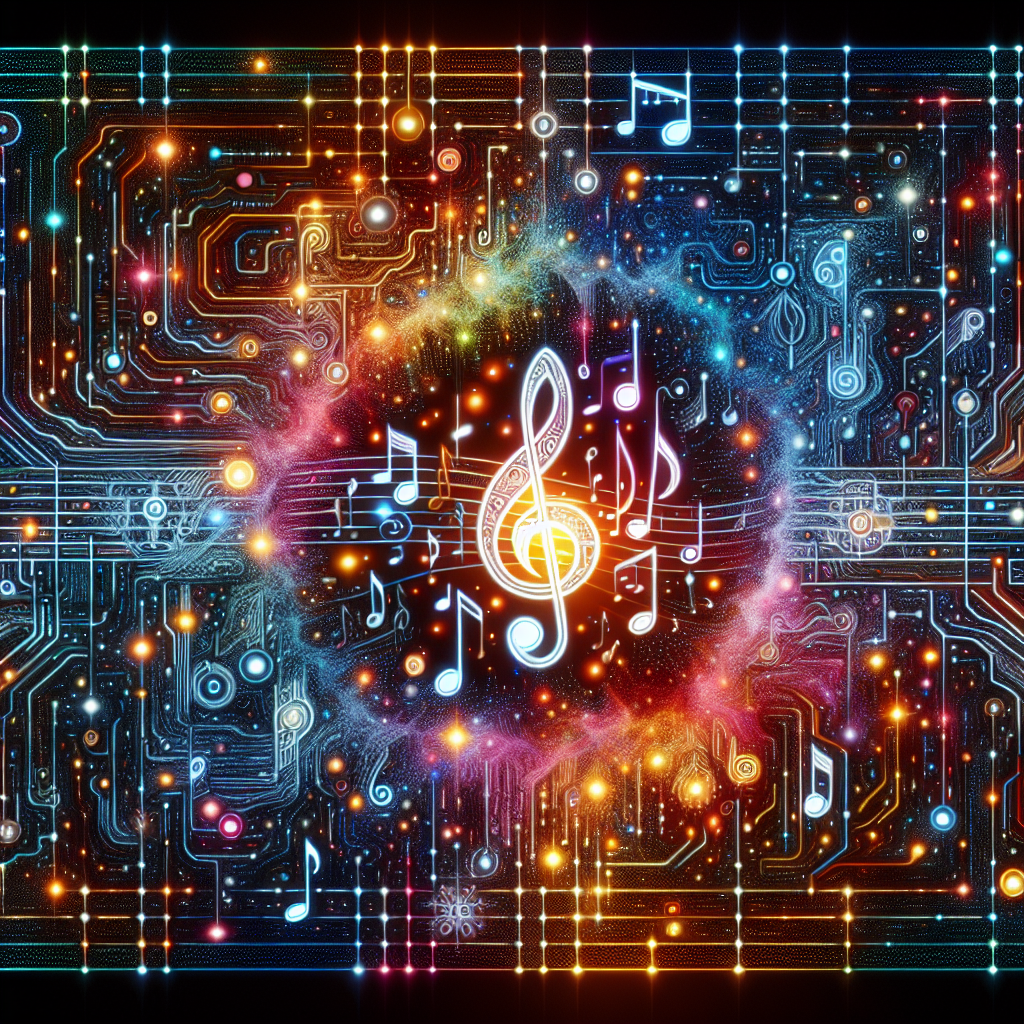In recent years, artificial intelligence (AI) has made significant advancements in various fields, including music composition. AI-generated music has become increasingly popular among musicians, composers, and music enthusiasts, as it offers a new way to explore creativity and push the boundaries of what is possible in music production.
AI-generated music involves using algorithms and machine learning techniques to compose, produce, and perform music. These algorithms are trained on vast amounts of musical data, such as existing songs, melodies, and harmonies, to generate new compositions that mimic the style of a particular artist or genre.
The creative potential of AI-generated music is immense, as it allows musicians and composers to experiment with new ideas, sounds, and structures that may not have been possible through traditional means. AI can generate music that is complex, innovative, and unique, pushing the boundaries of what is considered conventional or mainstream.
One of the key advantages of AI-generated music is its ability to generate music at a much faster pace than human composers. AI algorithms can churn out hundreds of compositions in a fraction of the time it would take a human composer to do the same. This rapid generation of music allows musicians to explore a wider range of ideas and styles, leading to more diverse and experimental music.
Furthermore, AI-generated music can help musicians overcome creative blocks or writer’s block. By providing a starting point or inspiration, AI-generated music can help musicians break out of their usual patterns and explore new directions in their compositions. This can lead to more innovative and unique music that pushes the boundaries of what is considered traditional or mainstream.
Additionally, AI-generated music can also be used as a tool for collaboration between humans and machines. Musicians can use AI algorithms to generate ideas, melodies, or harmonies, which they can then manipulate, edit, and enhance to create a final composition. This collaborative process can lead to exciting and unexpected results, as human creativity interacts with the capabilities of AI algorithms.
Despite its potential, AI-generated music also raises questions and concerns about the role of AI in music composition. Some critics argue that AI-generated music lacks the emotional depth and human touch that is present in music created by human composers. They argue that AI-generated music may lack the soul, passion, and authenticity that comes from human experiences and emotions.
However, proponents of AI-generated music argue that AI can be a powerful tool for creativity and innovation in music composition. They believe that AI can help musicians explore new ideas, styles, and sounds that may not have been possible through traditional means. AI-generated music can open up new possibilities for musicians to experiment with different genres, structures, and techniques, leading to a more diverse and eclectic music landscape.
Furthermore, AI-generated music can also help democratize music production and composition. With the rise of AI tools and platforms that allow users to create music without traditional musical training, more people can participate in music creation and production. This can lead to a more inclusive and diverse music industry, where individuals from different backgrounds and experiences can contribute to the music landscape.
In conclusion, the creative potential of AI-generated music is vast and exciting. AI algorithms can help musicians explore new ideas, styles, and sounds, pushing the boundaries of what is possible in music composition. While there are concerns and criticisms about the role of AI in music creation, AI-generated music offers a new way for musicians to experiment, collaborate, and innovate in their compositions.
FAQs about AI-Generated Music:
Q: Can AI-generated music be as good as music created by human composers?
A: AI-generated music can be as good as music created by human composers in terms of technical proficiency and complexity. However, some argue that AI-generated music may lack the emotional depth and human touch present in music created by human composers.
Q: How can musicians use AI-generated music in their compositions?
A: Musicians can use AI-generated music as a tool for inspiration, collaboration, and experimentation. AI algorithms can help musicians generate new ideas, melodies, and harmonies, which they can then manipulate, edit, and enhance to create a final composition.
Q: Is AI-generated music a threat to human composers?
A: AI-generated music is not a threat to human composers, but rather a tool for collaboration and creativity. Human composers can use AI algorithms to explore new ideas, styles, and sounds that may not have been possible through traditional means.
Q: Will AI-generated music replace human composers in the future?
A: While AI-generated music has the potential to transform the music industry, it is unlikely to replace human composers entirely. Human creativity, emotions, and experiences are essential to music composition, and AI algorithms can complement and enhance human creativity rather than replace it.

